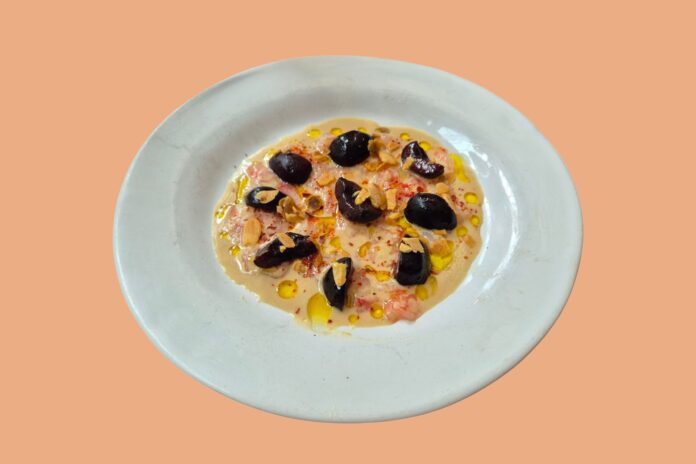What is a healthy heart diet, we hear you ask? A pretty broad question, we accept, but The American Heart Association defines one as incorporating fruits and vegetables, whole grains, fish, low-fat dairy products, skinless poultry, and non-tropical vegetable oils. Additionally, they recommend keeping portion sizes appropriate and eating a wide, balanced variety of foods.
For us, the Mediterranean style-diet is the ultimate heart healthy diet, and it’s pretty much accepted that eating a diet low in fat, salt, and processed foods while high in fruits, vegetables, whole grains, legumes, fish, and nuts is beneficial for your health. Eating this way may reduce the risk of heart disease as well as other chronic illnesses like diabetes or high blood pressure.
The Med’s famously healthy diet is also one that focuses commendably on substituting saturated fats with monounsaturated and polyunsaturated sources such as nuts, seeds, olive oil, avocados, canola oil, flaxseed, and fatty fish. All good, delicious stuff with benefits to match, as a diet consisting of fruits, vegetables, whole grains, legumes, and fish may well reduce your risk for cardiovascular disease. Furthermore, it could aid in attaining and maintaining a healthy weight.
Intrigued to discover more? Here some of the benefits of a heart-healthy diet…
Lower Your Blood Pressure
High blood pressure (hypertension) is often unnoticed but it increases your risk for heart disease and stroke. There are ways to lower your blood pressure without medications, including eating a heart-healthy diet and making lifestyle changes like regular exercise a part of your routine. A heart-healthy diet contains low sodium and a high amount of potassium (within reason, of course). This can help to significantly lower your blood pressure and give you better control over your heart health.

Reduce Your Cholesterol
A heart-healthy diet can be as tasty and varied as it is beneficial. Not only does it aid weight loss, but it also helps you to lower cholesterol levels. High cholesterol can increase your risk for heart disease and stroke, but there are ways to lower it. These include making dietary changes as well as taking medications called statins. Eating a variety of vegetables and fruit can also help lower your total cholesterol, as they contain soluble fibre, which lowers ‘bad’ LDL cholesterol in the bloodstream.
Increase Your Energy Levels
A heart-healthy diet can keep you energetic throughout the day. It also helps prevent that mid-afternoon slump that occurs after consuming sugar-laden foods and drinks. Eat more vegetables and fruits to get the essential vitamins, minerals, antioxidants, and fibre you need for a healthy heart and a sense of vigour and vitality.
Increase Your Longevity
Eating plenty of fresh produce like vegetables and fruit could well significantly extend your life expectancy. These foods are packed with vital nutrients, dietary fibre, and antioxidants, which reduce the risk of cardiovascular disease. Furthermore, they’re low in calories and free from saturated fat.

Improved Gut Health
Gut health plays a significant role in our overall well-being, from preventing chronic diseases and supporting brain health to keeping our immune systems running strong. It’s made up of beneficial bacteria living in your digestive tract that break down food into chemicals that aid with regular bowel movements, lower blood sugar and cholesterol levels, reduce inflammation, and influence mood swings. It’s possible to improve your gut health with a heart-healthy diet.
Diabetes Management
Diabetics must be particularly mindful of what and how much food they consume, as the amount of blood glucose in their bodies can have a major impact on heart health. Eating heart-healthy foods that promote weight loss, lower cholesterol levels, and regulate blood pressure can help you in diabetes management. A heart-healthy diet should include a variety of vegetables, fruits, whole grains, and low-fat dairy products.
Additionally, managing diabetes effectively can have broader implications beyond just health. For instance, maintaining good control over your diabetes can positively influence your eligibility and premiums for life insurance for type 1 diabetes and type 2 diabetes. Insurers often look favourably on individuals who demonstrate a commitment to a healthy lifestyle, which includes adhering to a heart-healthy diet. This not only helps in managing your condition but also provides peace of mind for you and your loved ones.
Lower Stress Levels
One of the primary health advantages of a heart-healthy diet is that it helps reduce stress. While an occasional increase in stress hormones is normal and beneficial, chronic stress can raise blood pressure, cholesterol, and triglyceride levels, increasing your risk for heart disease. However, a heart-healthy diet can help you to lower stress levels.

Some Of The Best Heart-Healthy Foods
If you’re worried about your heart health, the best place to start is with food. Eating foods that promote heart health will help maintain healthy cholesterol and blood pressure levels. Here are some of the very best heart-healthy foods you can eat…
- Vegetables and fruits: These are rich sources of vitamins, minerals, and dietary fibre. Consuming more vegetables and fruits can help prevent cardiovascular disease and assist in maintaining a healthy weight.
- Whole grains: Opting for whole grains instead of refined grains provides essential nutrients and fibre that play a role in regulating blood pressure and heart health. Examples of whole grains include whole-wheat flour, quinoa, barley, and brown rice.
- Low-fat protein sources: Choosing lean meats, skinless poultry, fish, soy products, and legumes as your primary protein sources can help reduce the intake of unhealthy fats and promote heart health.
- Healthy fats: Limiting saturated and trans fats found in processed foods, red meat, and dairy is crucial for a heart-healthy diet. Instead, focus on consuming monounsaturated and polyunsaturated fats found in olive oil, sunflower oil, avocados, nuts, and seeds.
- Fibre: Consuming more fibre-rich foods, such as oats, legumes, flaxseed, apples, and citrus fruits, can help lower cholesterol levels and support heart health.
- Reduced salt intake: Limiting sodium consumption is vital for preventing high blood pressure, a risk factor for heart disease.
The Bottom Line
If you want to keep your heart healthy, it is essential that you adhere to a nutritious diet. A heart-healthy diet can help you to lower the risk of heart disease as well as keep your blood pressure and cholesterol levels under control, all of which leads to a potentially longer life. What’s not to love?
*This article is not intended to replace medical or dietary advice, diagnosis or treatment given by a qualified health professional, cardiologist or nutritionist. Instead, this article only provides information, not advice. For any medical enquiries, always consult your GP first*





